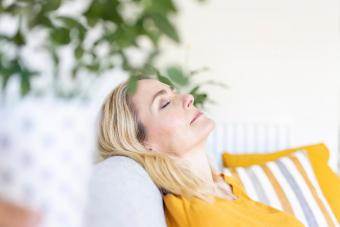
If you are wondering what is somnolence, it is a word that describes a sleepy or near sleep state. It comes from the Latin word "somnus," which translates as the word "sleep."
Understanding Somnolence
Similar to drowsiness, somnolence occurs when a person has a strong desire for sleep. It is also a term that is used to describe excessive sleepiness during the day and certain sleep disorders. For most people, drowsiness at bedtime is a natural part of the circadian rhythm, although excessive tiredness and daytime sleepiness could be a sign of a sleep disorder.
Other Terms Related to Somnolence
Sometimes somnolence or a variation of the word is used to describe sleep disorders and sleep conditions. These include:
Hypersomnia
This is a condition where a person experiences prolonged daytime sleepiness or persistent and uncontrollable drowsiness. It may be difficult to stay awake during the day and there may be excessive periods of time in deeper sleep with hypersomnia.
Somnambulism
The term somnambulism is another word for sleepwalking. This is a sleep condition in which a person who is asleep performs activities such as walking or sitting up in bed. While people who sleep walk do not typically have excessive daytime sleepiness or symptoms of hypersomnia, they could experience this common condition in the early stages of sleep.
Somnambulism is similar to somnolence in that the person is not fully aware of his or her surroundings, but is moving around. Being somnolent is a state that is between sleeping and waking.
Causes of Somnolence
Drowsiness or a strong need for sleep occurs for a number of reasons. Becoming somnolent before falling asleep is a natural biological process for people who do not have sleep disorders. The body sleeps every night in order to repair cells and recharge itself. If a person is getting the proper amount of sleep, excessive daytime tiredness should not occur. For people who are dealing with somnolence and do not have a sleep disorder, here are some other potential causes:
- Medications: Certain medications cause drowsiness, such as cough medicines or allergy products with antihistamines, pain relievers, and antidepressants. Alcohol can also cause sleepiness.
- Hormones: Hormone levels can cause drowsiness in women during times in their menstrual cycle, during pregnancy and after childbirth. Also, an underactive thyroid can cause a person to want to sleep more or take daytime naps.
- Diseases: There are a number of conditions that cause the body to want to sleep more. These include an underactive thyroid, chronic diseases such as heart disease, strokes, and diabetes, and autoimmune diseases.
- Depression: A depressed state can cause a person to feel fatigued, low in energy, and have a strong desire to sleep. Some people with depression will oversleep or sleep all day, while other people who have depression symptoms may experience insomnia.
Managing This Condition
Now that you know what is somnolence and some of the causes, be sure to get the proper amount of rest. Here are a few more tips:
- Get seven to eight hours of quality sleep per night.
- Sleep a few extra hours, if possible, to avoid being excessively tired during the day.
- Keep a regular sleep schedule. Go to bed and wake up at the same times every day.
- Avoid alcohol or caffeine.
- Avoid getting in bed or even being in the bedroom unless it is time to sleep.
Consult Your Physician About Somnolence
Talk to your doctor if you suspect you are getting enough sleep, but are still feeling tired or drowsy during the day. Somnolence may be a sign of an undiagnosed, treatable condition, and relief may be just around the corner.







